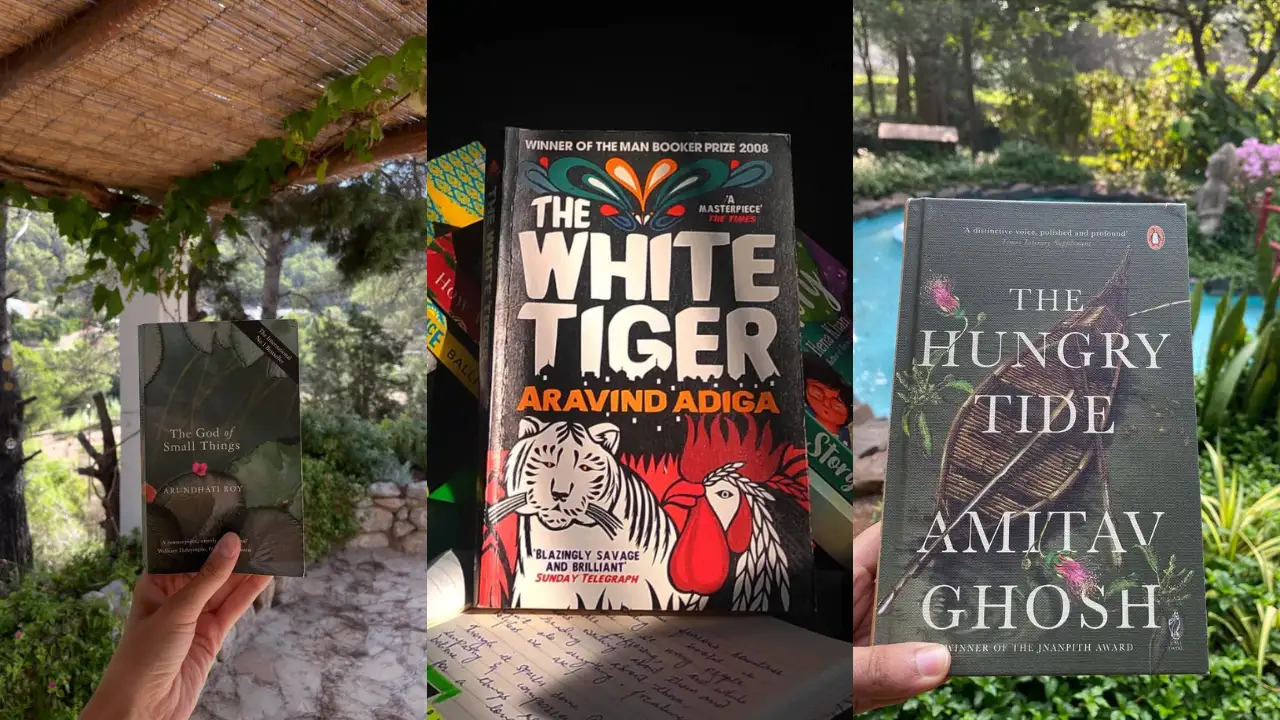Copyright timesnownews

Kiran Desai's ‘The Inheritance of Loss’ leaves readers with lingering questions about identity, belonging, and the quiet tragedies of colonialism. If you found yourself captivated by her delicate exploration of lives caught between cultures, you're likely searching for stories that carry similar emotional weight. The beauty of Desai's novel lies not just in its poignant narrative but in how it captures the universal experience of feeling torn between two worlds. The books in this collection share that same raw honesty about displacement, offering perspectives from different corners of our postcolonial world. Each author brings their unique voice to themes of migration, lost homes, and fractured identities. Also Read: 8 Books to Read If You Liked 'I Want to Die but I Want to Eat Tteokbokki' 1. Season of Migration to the North by Tayeb Salih A Sudanese man returns home after studying in England and meets Mustafa Saeed, a mysterious figure with a dark past. Mustafa tells how he once seduced British women to avenge colonialism and ended up committing murder. Tayeb Salih’s story examines how colonised people internalise the identities imposed on them. Mustafa uses the West’s fantasies about the East against them, but his actions mirror the same violence he seeks to resist. The narrator begins questioning his own identity, torn between Sudan and England. Salih’s poetic writing explores masculinity, revenge, and alienation. Like ‘The Inheritance of Loss’, this novel shows how colonial education divides people between worlds, leaving them unable to belong fully to either. 2. The White Tiger by Aravind Adiga Balram Halwai tells his story through letters to the Chinese Premier, explaining how India really works beneath its democracy. Born into poverty in Bihar, Balram becomes a driver for a wealthy family and witnesses corruption, exploitation, and violence that keep class divisions alive. Aravind Adiga writes with dark humour as Balram describes India’s “rooster coop,” where the poor remain trapped until one escapes through crime. The novel shows how growth benefits the rich while leaving others behind, and how morality often cannot survive poverty. Balram’s cynical voice justifies his choices, including murder, as his only path to freedom. Similar to ‘The Inheritance of Loss’, Adiga’s novel explores globalisation, inequality, and the lasting effects of colonial power on modern India. Both books show how ambition and despair collide in a country torn between wealth and want. 3. A River Sutra by Gita Mehta A retired bureaucrat moves to the banks of the Narmada River to live peacefully, but instead meets visitors whose stories reveal India’s spiritual and emotional depth. Each tale tells of love, loss, or obsession: a monk who breaks his vows, a musician searching for his kidnapped daughter, and a man whose wife becomes possessed. Gita Mehta uses these stories to explore Indian spirituality, sexuality, and the balance between desire and duty. The narrator slowly realises how his Western education distanced him from his culture. The river itself becomes a symbol of time and the sacred. Similar to ‘The Inheritance of Loss’, this novel explores India’s struggle between tradition and modernity, but focuses more on spiritual discovery than material struggle. 4. The Redundancy of Courage by Timothy Mo Adolph Ng, a Chinese-Cambodian restaurant owner, tells his story of survival during Indonesia’s invasion of East Timor in the 1970s. At first, Ng tries to stay neutral, caring more about his restaurant than politics, but violence around him forces him to take sides. Timothy Mo creates an unusual hero in Ng, whose humour and practicality contrast with the horrors of war. The novel shows massacres, famine, and moral struggle as Ng learns courage in impossible circumstances. He is caught between identities, not fully belonging anywhere. Mo explores how former colonies repeat old violence and how global powers ignore suffering when convenient. Like ‘The Inheritance of Loss’, this book examines how history and politics overwhelm ordinary people and what it means to survive when every choice demands a compromise. 5. Train to Pakistan by Khushwant Singh The Punjabi village of Mano Majra lives peacefully until Partition violence arrives in 1947, forcing Sikhs and Muslims to face divisions they once ignored. The train, once a symbol of routine, begins arriving with corpses of refugees, shattering the village’s calm. Khushwant Singh follows Juggut Singh, a Sikh criminal in love with a Muslim girl, Iqbal, a political organiser, and the magistrate trying to hold order. The novel shows how distant political choices destroy local harmony and how fear turns neighbours into enemies. Singh’s clear, honest storytelling captures Partition’s horror without blame, showing how ordinary people suffer from decisions made by others. Similar to ‘The Inheritance of Loss’, it explores how politics and history ruin personal lives and how the past continues to shape identities long after the violence ends. 6. The Hungry Tide by Amitav Ghosh Piya, an Indian-American scientist, travels to the Sundarbans to study rare river dolphins and meets Fokir, an illiterate fisherman who knows the tides deeply. Kanai, a translator from Delhi visiting his aunt, joins them, carrying a notebook left by his uncle describing tragic events from years before. Amitav Ghosh blends these stories with the real 1979 massacre of refugees in a tiger reserve island. The novel explores the conflict between conservation and survival, between science and local wisdom. The Sundarbans’ shifting land and water mirror the uncertainty of its people’s lives. Piya and Fokir communicate without a shared language, connecting through gestures and shared goals. Like ‘The Inheritance of Loss’, this story explores displacement, colonial legacy, and people balancing between local roots and global identities. 7. The God of Small Things by Arundhati Roy Twins Rahel and Estha grow up in Kerala, India, during the 1960s, their childhood marked by family problems, forbidden love, and a tragedy that changes their lives forever. Arundhati Roy moves between 1969, when the twins are seven, and 1992, when Rahel returns home after many years, slowly uncovering the events that broke their family apart. The story centres on their mother Ammu’s doomed love affair with Velutha, an untouchable man who works at the family’s pickle factory, a relationship that crosses every social line in their rigid community. Roy shows how caste, class, and colonialism shape lives, how oppression hides in personal relationships, and how children absorb adult hypocrisy. The writing is lyrical and fragmented, moving through time in a way that mirrors memory and trauma. Roy captures Kerala’s landscape, its politics, and the beauty that survives in a cruel world. Like ‘The Inheritance of Loss’, this novel explores identity, displacement, and the painful effects of colonialism across generations. Also Read: 8 Books to Read If You Liked 'Convenience Store Woman' 8. In the Castle of My Skin by George Lamming A boy named G grows up in a Barbadian village during the 1930s and 40s, his life mirroring the island’s move from British rule toward independence. George Lamming describes a close-knit community where everyone depends on each other, yet where British education teaches self-doubt and foreign loyalty. The story follows G’s friendships, his mother’s struggles, and his growing awareness of inequality. Lamming explores how colonial systems shape identity and how independence brings new struggles to local elites. The lyrical prose captures how personal growth connects to political change. Similar to ‘The Inheritance of Loss’, this novel shows how people seek identity after colonialism, finding themselves caught between belonging and exile. After journeying through these eight remarkable novels, you've travelled across continents and generations, witnessing how displacement reshapes identity in countless ways. And just like ‘The Inheritance of Loss,’ each story reminds us that home isn't always a place we can return to, since sometimes it exists only in memory, language, or the spaces between cultures. These narratives prove that Desai's themes aren't isolated; they're part of a larger conversation about what we carry when we leave our birthplaces behind. As you close these pages, you carry forward the same truth that opened this journey: our search for belonging continues across every border.



